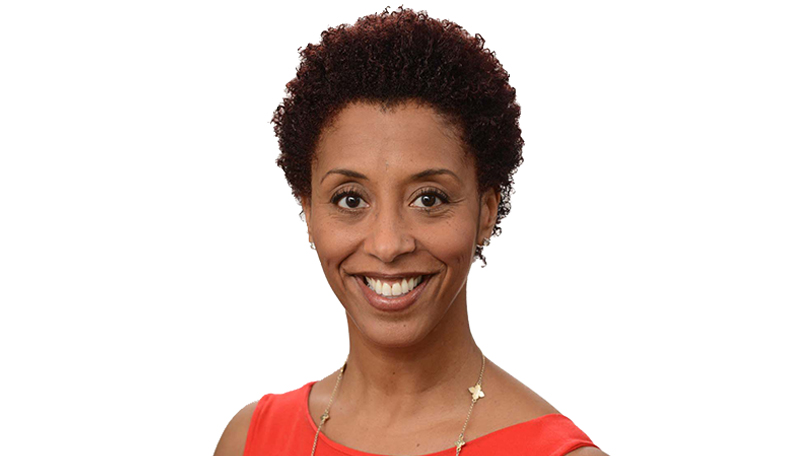Exploring System Dynamics, inclusive ML and societal impact: Meet Googlers Donald Martin and Jamaal Sebastian-Barnes
Data for Black Lives (D4BL) is a group of activists, organizers, and engineers committed to the mission of using data science to create concrete and measurable change in the lives of Black people. From January 11-14th, 2019, the organization held their annual conference, of which Google was the lead sponsor, at MIT’s Media Lab. Over 400 participants attended the conference.
Google sponsored a workshop on System Dynamics and the wealth gap. To recap the Google workshop and the many ideas that surfaced at the conference, I met up with Googlers Jamaal Sebastian-Barnes, an Engineering Program Manager with Google AI, who works on fairness in machine learning, and Donald Martin, Jr., a Technical Program Manager with Google’s Trust & Safety-Global Product Policy organization, who focuses on the societal impact of AI.
Annie: Donald, how did you set the foundation for the System Dynamics Workshop at this year’s D4BL conference?
Donald: I joined Google’s Trust & Safety organization in 2017 to work on helping Google gain a deeper understanding of the societal issues that impact its users. To further that work, I attended the inaugural D4BL conference to network with key people working at the intersection of data science, community organizing, and social justice. While at the conference, it dawned on me that folks working in this space could benefit from a methodology for analyzing and understanding the complex problems they are trying to solve. D4BL co-founder Yeshimabeit Milner agreed to let me organize a System Dynamics workshop for the 2nd annual conference and I was able to recruit some amazing Googlers– like you and Jamaal!– to help make it happen.
Annie: Can you unpack what System Dynamics is, and how it can contribute to product inclusion?
Donald: System Dynamics is a methodology – invented at MIT over 50 years ago – for describing and modeling complex problems both qualitatively and quantitatively. For the workshop, we taught a variant called Community Based System Dynamics (CBSD), which is specifically focused on building capacity within communities to describe and model the problems they face directly, without intermediaries. These first-hand descriptions and models can be valuable sources of human experience and user need data for User Experience Researchers and Product Managers who are motivated to build products that work well for everyone, including those from traditionally marginalized communities.
Annie: Jamaal, why were you passionate about the workshop and what was your role?
Jamaal: First of all, thanks to Donald for inviting me to be part of making this vision real! It’s truly been a joy to work on this project.
I served as the lead program manager for Google’s sponsorship of the conference, helping to strategize, plan, and execute our relationship with Data for Black Lives generally, and the System Dynamics workshop in particular. However, it truly took a village to support this work and I am grateful to you, Annie, and the other Googlers who supported the work.
The opportunity to implement this workshop was exciting to me because I deeply believe in applying methods like System Dynamics and its variants to surface meaningful insights about the ways in which factors can influence individual, community, and societal level outcomes.
I was first introduced to System Dynamics and Systems Thinking in graduate school, and it has been wonderful to connect with community leaders, activists, and technologists through Data for Black Lives to understand how this method can aid in mapping and influencing a community’s lived experience.
Annie: How did you co-design the recent workshop with the these community organizers?
Donald: Early on, we met with a number of community organizers to talk about the idea of a System Dynamics workshop. Their input played a huge role in us deciding that we had to make sure the teachers of the workshop reflected the lived experiences of the conference attendees and the communities we wanted to positively impact. So we hosted a System Dynamics learning lab for about 15 people, including Googlers, in November of 2018. The attendees of that lab worked really hard together to plan and deliver the workshop just 2 months later. I was amazed by what they achieved!
Annie: Donald, can you tell us how you believe Google’s products can support underserved communities?
Donald: I believe Google’s products can support underserved communities by making it easier for them to a) find and synthesize knowledge about the complex challenges they face and b) collaborate around that common understanding to build coalitions and drive sustainable change. In order to realize that aspiration, it’s important that User Experience Researchers and Product Managers strive to understand the lived experiences and needs of those communities. I think CBSD could be a useful methodology for gaining those insights.
Annie: Jamaal, you work on fairness in machine learning as your “day job.” Can you tell us a bit more about how Google’s presence at Data for Black Lives ties into that work?
Jamaal: The aspiration of creating, designing, coding, and building for everyone means that it is important to participate in spaces and conversations that highlight both the challenges and opportunities related to machine learning – and its effects on the human experience. To me, this is just as important as assessing data sets for potential sources of bias, and evaluating models for disparate performance.
Data for Black Lives provides a critical space for intersectional conversation by bringing together community organizers, research scientists, and other stakeholders to reflect on how machine learning can be a powerful tool for combating bias, while also demonstrating the ways that unfairness in machine learning systems can have widespread negative impact for many, and in particular, communities of color.
Annie: Finally, what’s one thought or action you’d like to leave readers with as it relates to technology and system dynamics, in the context of creating real and measurable positive impact on the Black community globally?
Donald: We need to rethink what it means to be an “expert” or have “expertise.” The Black community is rich with expertise about the factors and dynamics that underlie the many complex issues we face as a society. That expertise is just as valuable as that of a data scientist or software engineer, with no direct experience of the issues, when it comes to building AI-based products in a way that ensures that all of society can benefit.
Jamaal: I agree with Donald; it is essential that we respect and value all forms of knowledge. In addition to that, I’m encouraged by the prospect of this framework as an aid that helps communities map coalition-building opportunities in order to accelerate positive social change.
Inspired by Donald and Jamaal? Apply for a job at Google to create, code, design and build for everyone.
Contact Us
Stay in touch. We want to hear from you. Email us at Acceleratewithgoogle@google.com
Please note that this site and email address is not affiliated with any former Google program named Accelerator.



